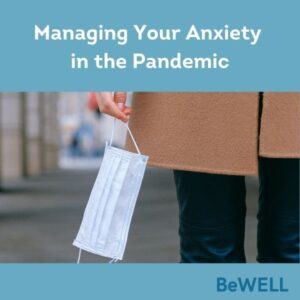Spring is upon us and your thoughts are turning to your 20-something’s imminent college graduation. Congratulations parents! Over the past two decades, you have worked hard, sacrificed, and devoted yourself to your soon-to-be grad’s mental, emotional, and social well-being. In a “regular” year, college graduation would bring up a wide range of feelings for you and your graduate. This year, the coronavirus may have placed additional layers of complexity to your student’s next steps. Whether they lived at home or on campus during the pandemic, I’ve outlined some suggestions below on how you can assist your student as they transition to life as a “graduate.” These tips apply to whether they continue to live at home or they are returning home, or perhaps, moving out and living on their own. The essential thread running through these scenarios is to support your grad as an “emerging adult.”
What’s an “Emerging Adult?”
In 2000, the psychologist Jeffrey Jensen Arnett, PhD, defined the term “emerging adulthood” as a period of development between the ages 18-29. He expounds on this period as an “in-between” time, from the end of adolescence to the beginning of taking on young adult responsibilities such as a stable job, marriage and parenthood. Arnett describes this betwixt and between stage as one in which there is a “pulling away” from adolescent struggles and moving toward taking on greater personal responsibilities, while maintaining close connections with their parents and family. He outlined this transition from dependency to responsibility with the following five elements.
Five Characteristics Common to Emerging Adults:
Identity exploration: Emerging adults are figuring out who they are and what they want from work, school and love.
Instability: These young adults make many changes in their living arrangements whether dorm or apartment moves, changes in college courses and majors, as well as changes in jobs and career goals.
Self-focus: These young people are examining the type of romantic partner they want to be with and the career path they want to pursue, without the constraints of marriage and children.
Feelings of “in between”: Many emerging adults say they are taking responsibility for themselves, but still do not completely feel like an adult. They feel not quite like a teen and not fully like an adult.
Possibilities: Optimism is predominant. Most emerging adults believe they have good chances of living “better than their parents did.”
Wondering Why Your 20-Something Continues to Make Impulsive Decisions?
While your young adult may have been driving a car for a handful of years; their ability to obtain a driver’s license may not necessarily correlate with their making well-reasoned decisions at every turn. The autobody shop holds all the secrets! Developments in neuroscience, facilitated by MRIs, have shed light on how the adolescent brain continues to mature through their 20s. The pre-frontal cortex is the part of the brain which controls reasoning, “the CEO of the brain,” overseeing planning, working memory, organization, attention, and modulating mood. Neuroimaging studies have revealed that this part of the brain matures relatively later in an adolescent’s life. As such, there appears to be broad agreement in the neuroscience community that adolescents take more risks, at least partly because the pre-frontal cortex has not fully matured. Contributing to the adolescent’s risky behavior is that the amygdala, the part of the brain responsible for emotional processing, immediate reactions including fear and aggressive behavior, develops early. Furthermore, research reveals that exposure to alcohol and drugs during the adolescent years can change or delay these developments. So, just because your grad is “licensed” to drink and drive, their brain is still maturing throughout their 20s and their reasoning skills may reflect this point.
“Disenfranchised Grief”—Hidden losses during the pandemic
In addition to the tremendous loss of life over the past year due to Covid-19, you and your emerging adult may have experienced hidden losses and sorrows that are not universally acknowledged by society. These losses comprise that is known as “disenfranchised grief.” This term was coined by psychologist Kenneth J. Doka, an expert in bereavement who studied grief that is not typically recognized, acknowledged or mourned with rituals. Some examples of disenfranchised grief are the loss of a beloved who is not a family member or blood related such as a romantic partner or an in-law, where there is no legal relationship to the person we lost. In addition, this type of grief includes sorrows other than loss of life such as the loss of pets, the loss of a job, the loss of a final college sports season, the loss of an in-person graduation ceremony and the accompanying long anticipated festivities marking this milestone.
You and your graduate may feel that you don’t have the right to grieve over these losses as compared to the enormity of the human losses we continue to witness. Your grief is real. You may be experiencing depressive symptoms such as loss of sleep, agitation, social isolation, or low self-esteem. The research on disenfranchised grief suggests naming, acknowledging, and ritualizing these losses to achieve improved emotional regulation. This can be accomplished by discussing these losses with your graduate–addressing each loss specifically– by affirming and validating the importance of these losses as well as defining the nature of the relationship between your grad and the loss (e.g the inability to celebrate and say goodbye to classmates, teammates, faculty members). Exploring your grad’s grief as well as your own, may not only build greater intimacy within your relationship, but they are essential steps in the grief resolution process.
Increased Mental Health Issues Due to Coronavirus, Political and Social Unrest
College graduation, while a joyous milestone, will no doubt be a different experience this spring, even with the availability of vaccinations, as we’ve entered our 2nd year of the pandemic and the social distancing required to control it. Keep in mind, your young adult has experienced the loss of a typical college experience, with shut downs and virtual learning, living at home with parents and siblings, loss of internships and paid employment. With these losses come an increase in mental health issues. According to a recent CDC survey, 63% of 18-24 year olds have been deeply impacted by the pandemic and suffering significant symptoms of anxiety or depression and increased suicidal ideation. A nationwide survey conducted by Boston University of nearly 33,000 college students throughout the U.S. highlights that 83% of students reported that the state of their mental health negatively impacted their academic performance. In addition, two-thirds of students reported grappling with loneliness and feelings of isolation.
The Making Caring Common Project at Harvard University’s Graduate School of Education reported results from its survey of close to 1000 adults ranging in age from 18-55 years old with 43% of young adults reporting increases in loneliness since the beginning of the pandemic. The survey revealed that “young adults are even more likely than lonely people generally to lack basic forms of human attention and emotional sustenance…that no one took more than a few minutes to ask how they were doing in a way that made them feel like the person genuinely cared.” The Project outlined 3 areas to help your young adults to mitigate loneliness:
- Providing strategies to assist your grad to identify and manage the self-critical thoughts and behaviors to lessen loneliness: Listen, acknowledge, validate your young adult’s struggles with self-critical thoughts and behavior; utilize empathy, place yourself in their shoes;
- Building social structures in additional to physical ones: Health care systems, workplaces, religious and secular community organizations, colleges can be more present in your grad’s life to connect them to resources that support social connections;
- Making an effort to commitment to a higher goal of common good: Shifting our focus from a hyper-individualistic model of self-interests and self-advancement to one that includes a commitment to advancing the needs of the vulnerable and marginalized.
How to Balance Expectations Post-Graduation
Looking forward to when commencement ceremonies have concluded, degrees conferred, celebrations, whether in person or virtually, have ended, and your grad is now living at home in the short term or for perhaps longer…how are you going to balance your expectations with your graduate’s?
Curfews Assuming that your graduate has spent most of their college experience living on campus, your young adult has been out of your purview and not accustomed to having a curfew. Now that they are home (or have been at home this year), should you restart/continue that practice? What is your comfort level in having your grad stay out without knowing when or whether they will be returning home to sleep? Are you more comfortable with having your young adult check in at some point during the evening to give you the courtesy of an approximate arrival time. It is important to remember that respecting each other’s needs takes priority over setting a curfew and need for control. To help your graduate become respectful of your needs, model courtesy, by sharing your whereabouts, timing for your return home, whether you are going to be on time or late, with your partner/spouse.
Chores
What about that laundry pile building on top of the washing machine or the dirty clothing strewn around their bedroom? What is your comfort level for mess, in the common areas of the home or in their bedroom? Again, keeping in mind courtesy and respect for each other’s needs takes precedence over control. Weekly discussions of your expectations may need to take place as a way to review what has been agreed to, what is working, what is not.
Family Time
How do you envision the quantity and quality of family time? What are your expectations for sitting down for family meals, weekdays or weekends? Netflix Sundays? Virtual monopoly with the cousins and grandparents? While the pandemic has offered increased opportunities for shared family experiences, it is important to remember that your young adult is eager to spend time with their friends. In addition, your grad may be searching for employment and focused on their job search. Yes, there are demands on their attention other than yours. It may be helpful to sit down together to discuss and schedule weekly/monthly family time to creating meaningful shared experiences. Keeping the lines of communication open and flexible will assist with building stronger family ties.
Drinking/Drugs/Sleepovers
Parents, this is your home and you need to be comfortable with the expectations you have for your graduate regarding these issues vis-à-vis your values. You may have already laid the groundwork in these discussions over the past several years. Once again, having weekly check-ins may help in reviewing expectations and ensuring you are clear in communicating them with your grad. Creating a calm space to discuss these issues is helpful .
You may have already been discussing these issues–you are a step ahead–terrific! If not, no worries, there is no time like the present to start the conversations. I suggest to find a time when everyone is “of cool minds,” and to narrow the initial conversations with one or two topics. Slow and steady makes for sustained change.
Enjoy your emerging adult graduate!
For more information, check out the replay of our “Your Kid is Graduating from College in a Pandemic… Now What?” seminar.
Resources
Arnett, J.J. (2014). Emerging Adulthood: The Winding Road from the Late Teens Through the Twenties, Second Edition.Oxford University Press.
Johnson, Sara B., Blum, Robert W., Giedd, Jay N. (2009) Adolescent Maturity and the Brain: The Promise and Pitfalls of Neuroscience Research in Adolescent Health Policy, J Adolescent Health, 2009 Sep: 45(3): 216-221
https://www.ncbi.nlm.nih.gov/pmc/articles/PMC2892678/
Spinks, Sarah (2002). Adolescent Brains are Works in Progress, PBS Teen Brain, https://www.pbs.org/wgbh/pages/frontline/shows/teenbrain/work/adolescent.html
Parker-Pope, Tara. It’s OK to Grieve for the Small Losses of a Lost Year, New York Times, March 15, 2021
https://www.nytimes.com/2021/03/15/well/mind/grief-pandemic-losses.htm
Weissbourd, R., Batanove, M., Lovison, V.,Torres, E. (2021), Loneliness in America: How the Pandemic Has Deepened an Epidemic of Loneliness and What We Can Do About It: Making Caring Common Project, Harvard University Graduate School of Education.



